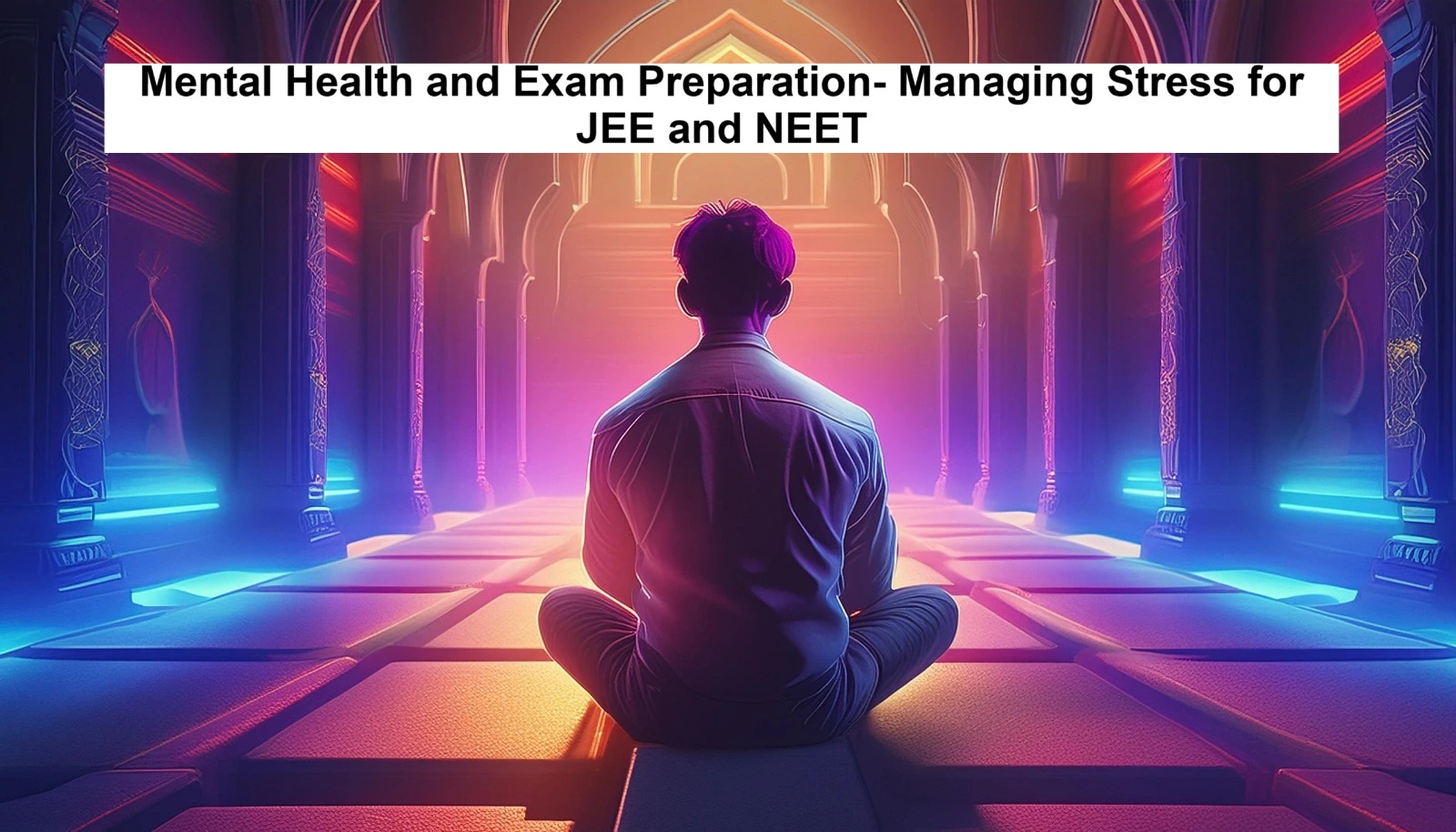Introduction
Maintaining mental health during exam preparation is crucial for JEE and NEET aspirants to perform at their best and sustain long-term well-being. Managing stress, anxiety, and other psychological challenges effectively is essential for achieving academic success while safeguarding mental wellness. This guide explores strategies for managing stress and promoting mental health among JEE and NEET aspirants.
The Impact of Stress on Exam Preparation
Understanding Exam-Related Stress
Exam-related stress is a common experience among JEE and NEET aspirants due to the high stakes, competitive nature, and perceived pressure to succeed. Stress can manifest in various forms, including anxiety, fear of failure, self-doubt, and physical symptoms such as headaches or insomnia.
Effects on Academic Performance
Prolonged or excessive stress can negatively impact academic performance by impairing cognitive function, concentration, and memory recall. Chronic stress may lead to burnout, fatigue, and decreased motivation, hindering effective study habits and exam preparation efforts.
Impact on Mental Health
Untreated exam-related stress can escalate into more serious mental health issues such as anxiety disorders, depression, or panic attacks. It is essential to prioritize mental health and implement strategies to manage stress effectively to prevent long-term psychological consequences.
Strategies for Managing Exam-Related Stress
Developing Coping Skills
Learn and practice coping skills such as deep breathing exercises, progressive muscle relaxation, mindfulness meditation, or visualization techniques to reduce stress and promote relaxation. Incorporate these techniques into your daily routine to build resilience and manage exam-related anxiety effectively.
Setting Realistic Expectations
Set realistic and achievable goals for exam preparation, acknowledging your strengths, limitations, and personal circumstances. Avoid comparing yourself to others and focus on making progress at your own pace, recognizing that setbacks and challenges are a natural part of the learning process.
Creating a Supportive Environment
Surround yourself with a supportive network of family, friends, teachers, or mentors who can offer encouragement, guidance, and emotional support during challenging times. Share your concerns, seek advice when needed, and prioritize self-care to maintain balance and perspective.
Promoting Mental Wellness
Establishing Healthy Habits
Prioritize self-care by maintaining a balanced lifestyle that includes regular exercise, nutritious meals, adequate sleep, and leisure activities that bring joy and relaxation. Physical well-being is closely linked to mental health and resilience in coping with stress.
Managing Time Effectively
Develop a realistic study schedule that allows for adequate rest, recreation, and breaks to prevent burnout and maintain productivity. Break down study tasks into manageable chunks, prioritize important topics, and allocate time for relaxation and rejuvenation.
Seeking Professional Support
If exam-related stress becomes overwhelming or significantly impacts your well-being, consider seeking professional support from a counselor, therapist, or mental health professional. Professional guidance can provide coping strategies, perspective, and interventions to manage stress and enhance resilience.
Conclusion
Managing stress and prioritizing mental health are essential components of effective exam preparation for JEE and NEET aspirants. By implementing strategies to cope with exam-related stress, establishing healthy habits, and seeking support when needed, students can navigate the challenges of exam preparation while safeguarding their mental wellness.
FAQs
How can I differentiate between normal exam stress and a more serious mental health issue?
Normal exam stress is temporary and manageable, typically dissipating after the exam period ends. However, if stress symptoms persist, intensify, or significantly impair daily functioning, it may indicate a more serious mental health issue requiring professional intervention.
What are some signs of excessive exam-related stress or anxiety?
Signs of excessive exam-related stress or anxiety may include persistent worry, irritability, sleep disturbances, physical symptoms such as headaches or stomachaches, difficulty concentrating, and avoidance of study-related activities.
How can I support a friend or peer who is experiencing exam-related stress?
Offer empathy, encouragement, and non-judgmental support to friends or peers experiencing exam-related stress. Listen actively, validate their feelings, and offer practical assistance such as studying together, providing study materials, or suggesting relaxation techniques.
Where can I find additional resources or support for managing exam-related stress?
Additional resources for managing exam-related stress may include online articles, self-help books, relaxation apps, mental health hotlines, or university counseling services. Don't hesitate to reach out for support if you're struggling to cope with exam-related stress.


Add Comment